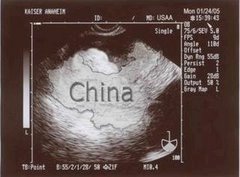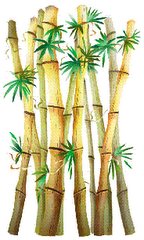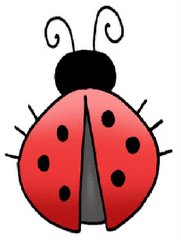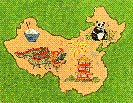|
|
|
Chinese New Year starts with the New Moon on the first day of the new year and ends on the full moon 15 days later. The 15th day of the new year is called the Lantern Festival, which is celebrated at night with lantern displays and children carrying lanterns in a parade.
The Chinese calendar is based on a combination of lunar and solar movements. The lunar cycle is about 29.5 days. In order to "catch up" with the solar calendar the Chinese insert an extra month once every few years (seven years out of a 19-yearcycle). This is the same as adding an extra day on leap year. This is why, according to the solar calendar, the Chinese New Year falls on a different date each year.
New Year's Eve and New Year's Day are celebrated as a family affair, a time of reunion and thanksgiving. The celebration was traditionally highlighted with a religious ceremony given in honor of Heaven and Earth, the gods of the household and the family ancestors.
The sacrifice to the ancestors, the most vital of all the rituals, united the living members with those who had passed away. Departed relatives are remembered with great respect because they were responsible for laying the foundations for the fortune and glory of the family.
The presence of the ancestors is acknowledged on New Year's Eve with a dinner arranged for them at the family banquet table. The spirits of the ancestors, together with the living, celebrate the onset of the New Year as one great community. The communal feast called "surrounding the stove" or weilu. It symbolizes family unity and honors the past and present generations.

Probably more food is consumed during the New Year celebrations than any other time of the year. Vast amounts of traditional food is prepared for family and friends, as well as those close to us who have died.
On New Year's Day, the Chinese family will eat a vegetarian dish called jai. Although the various ingredients in jai are root vegetables or fibrous vegetables, many people attribute various superstitious aspects to them:
| * Lotus seed - signify having many male offspring * Ginkgo nut - represents silver ingots * Black moss seaweed - is a homonym for exceeding in wealth * Dried bean curd is another homonym for fulfillment of wealth and happiness * Bamboo shoots - is a term which sounds like "wishing that everything would be well" * Fresh bean curd or tofu is not included as it is white and unlucky for New Year as the color signifies death and misfortune. |
|
| Other foods include a whole fish, to represent togetherness and abundance, and a chicken for prosperity. The chicken must be presented with a head, tail and feet to symbolize completeness. Noodles should be uncut, as they represent long life. |
| In south China, the favorite and most typical dishes were nian gao, sweet steamed glutinous rice pudding and zong zi (glutinous rice wrapped up in reed leaves), another popular delicacy. |
| In the north, steamed-wheat bread (man tou) and small meat dumplings were the preferred food. The tremendous amount of food prepared at this time was meant to symbolize abundance and wealth for the household. |
|
 | Prior to New Year's Day, Chinese families decorate their living rooms with vases of pretty blossoms, platters of oranges and tangerines and a candy tray with eight varieties of dried sweet fruit. On walls and doors are poetic couplets, happy wishes written on red paper. These messages sound better than the typical fortune cookie messages. For instance, "May you enjoy continuous good health" and "May the Star of Happiness, the Star of Wealth and the Star of Longevity shine on you" are especially positive couplets. |
| Plants and Flowers Every traditional Chinese household should also have live blooming plants to symbolize rebirth and new growth. Flowers are believed to be symbolic of wealth and high positions in one's career. Lucky is the home with a plant that blooms on New Year's Day, for that foretells a year of prosperity. In more elaborate settings, plum blossoms just starting to bloom are arranged with bamboo and pine sprigs, the grouping symbolizing friends &endash; the plum blossom also signifies reliability and perseverance; the bamboo is known for its compatibility, its utility and its flexible stems for furniture and other articles;the evergreen pine evokes longevity and steadiness. Other highly prized flowers are the pussy willow,azalea, peony and water lily or narcissus. The Chinese firmly believe that without flowers, there would be no formation of any fruits. Therefore, it is of the utmost importance to have flowers and floral decorations. They are the emblems of reawakening of nature, they are also intimately connected with superstition and with the wish for happiness during the ensuing year. |

| Oranges and Tangerines Etiquette dictates that you must bring a bag of oranges and tangerines and enclose a lai see when visiting family or friends anytime during the two-week long Chinese New Year celebration. Tangerines with leaves intact assure that one's relationship with the other remains secure. For newlyweds, this represents the branching of the couple into a family with many children. Oranges and tangerines are symbols for abundant happiness. |
| Candy Tray The candy tray arranged in either a circle or octagon is called "The Tray of Togetherness" and has a dazzling array of candy to start the New Year sweetly. After taking several pieces of candy from the tray, adults places a red envelope (lai see) on the center compartment of the tray. Each item represents some kind of good fortune. |
* Candied melon - growth and good health
* Red melon seed - dyed red to symbolize joy,happiness, truth and sincerity
* Lychee nut - strong family relationships
* Cumquat - prosperity (gold)
* Coconut - togetherness
* Peanuts - long life
* Longnan - many good sons
* Lotus seed - many children

| House Cleaning The entire house should be cleaned before New Year's Day. On New Year's Eve, all brooms, brushes, dusters, dust pans and other cleaning equipment are put away. Sweeping or dusting should not be done on New Year's Day for fear that good fortune will be swept away. After New Year's Day, the floors may be swept. Beginning at the door, the dust and rubbish are swept to the middle of the parlor, then placed in the corners and not taken or thrown out until the fifth day. At no time should the rubbish in the corners be trampled upon. In sweeping, there is a superstition that if you sweep the dirt out over the threshold, you will sweep one of the family away. Also, to sweep the dust and dirt out of your house by the front entrance is to sweep away the good fortune of the family; it must always be swept inwards and then carried out, then no harm will follow. All dirt and rubbish must be taken out the back door. |
 | Shooting off firecrackers on New Year's Eve is the Chinese way of sending out the old year and welcoming in the New Year. On the stroke of midnight on New Year's Eve, every door in the house, and even windows, have to be open to allow the old year to go out. |
| New Year Activities Set Precendent All debts had to paid by this time. Nothing should be lent on this day, as anyone who does so will be lending all the year. Back when tinder and flint were used, no one would lend them on this day or give a light to others. Everyone should refrain from using foul language and bad or unlucky words. Negative terms and the word "four" (Ssu), which sounds like the word for death, are not to be uttered. Death and dying are never mentioned and ghost stories are totally taboo. References to the past year are also avoided as everything should be turned toward the New Year and a new beginning. If you cry on New Year's day, you will cry all through the year. Therefore, children are tolerated and are not spanked, even though they are mischievous. |
|
| Personal Appearance and Cleanliness On New Year's Day, we are not suppose to wash our hair because it would mean we would have washed away good luck for the New Year. Red clothing is preferred during this festive occasion. Red is considered a bright, happy color, sure to bring the wearer a sunny and bright future. It is believed that appearance and attitude during New Year's sets the tone for the rest of the year. Children and unmarried friends, as well as close relatives are given lai see, little red envelopes with crisp one dollar bills inserted, for good fortune. |

| More New Year Superstitions For those most superstitious, before leaving the house to call on others, the Almanac should be consulted to find the best time to leave the home and the direction which is most auspicious to head out. The first person one meets and the first words heard are significant as to what the fortunes would be for the entire year. It is a lucky sign to see or hear songbirds or red-colored birds or swallows. It is considered unlucky to greet anyone in their bedroom so that is why everyone, even the sick, should get dressed and sit in the living room. Do not use knives or scissors on New Year's Day as this may cut off fortune. While many Chinese people today may not believe in these do's and don'ts, these traditions and customs are still practiced. These traditions and customs are kept because most families realize that it is these very traditions, whether believed or not, that provide continuity with the past and provide the family with an identity. |
















No comments:
Post a Comment